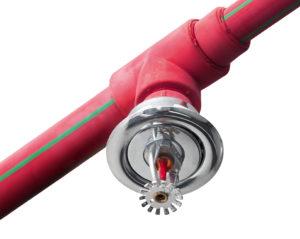
Philly condo, apartment residents protest a bill to add sprinklers to old buildings
Councilmember Mark Squilla wants to outfit older high-rises with sprinklers. An army of protesters at City Hall tried to change his tune.
Updated on Mar 17, 2023, 5:00 a.m. ET
Philadelphia Councilmember Mark Squilla found himself besieged Thursday by high-rise condo and apartment dwellers angered by a bill he introduced almost a year ago.
The legislation would mandate installation of sprinkler systems in older buildings over six stories. Critics say it would be prohibitively expensive and disruptive to the lives of residents. They also claim it was introduced for the benefit of the sprinkler fitters union.
“This bill is not about public safety,” said former Councilmember and mayoral candidate Maria Quiñones Sánchez, a longtime foe of the building trades unions.
“This is part of the corrupt system in Philadelphia, where somebody needs work and all of you should pay for it,” Quiñones Sánchez said to the protesters. “We will not grow to a city of 2 million people if we allow make–work legislation like this to go through.”
The bill under consideration has been kicking around City Hall since the beginning of Jim Kenney’s administration, with then-Councilmember Bobby Henon — the former political director of Local 98 of the International Brotherhood of Electrical Workers — its biggest champion. After he was convicted of bribery and honest services fraud in 2021, Henon stepped down but continued to argue in favor of the sprinkler bill.
After rallying outside City Hall, opponents of the bill marched up to Squilla’s office to lobby him personally. Then, they filled the second story of Council chambers, bearing signs reading “Philadelphia’s residents can’t afford bill 220299.”
Andre Del Valle of the Pennsylvania Apartment Association said the legislation is costly and unnecessary, saying it would cost $20,000 to $50,000 per unit to install.
“We’ve heard that their plan was to hold it until after the elections,” Del Valle said. “They need to understand residents won’t stand for this before or after May. There hasn’t been a fire in Philadelphia in the last five years where any loss of life or injuries happened in a high-rise.”
Maria Quiñones Sánchez speaks to a group of protesters who oppose a sprinkler bill proposed in 2022 by Councilmember Mark Squilla.
Squilla said he did not know why the protests targeted him Thursday. The bill is not scheduled for a hearing, let alone a final vote. He said negotiations are ongoing with condo owner associations to minimize any pain created by the legislation.
Possible compromises include first installing sprinklers in hallways and other common areas and requiring they be placed within units only after someone moves out and before a new lease begins, Squilla said.
He also adamantly denied Quiñones Sánchez’s characterization of his effort as a make-work bill for the building trades unions. He pointed to a bill passed in 2018 that mandated sprinklers in historic buildings after a devastating fire on Chestnut Street in Old City. (Quiñones Sánchez also voted against that bill for similar reasons.)
“To brush it off and say it’s just to create jobs is a little disingenuous,” Squilla said. “The same thing was said about [the historic building sprinkler bill], but if it wasn’t for those mandated sprinklers when someone tried to set Carpenters Hall on fire we would have lost one of our biggest historic treasures.”
After the One Meridian Plaza fire in 1991, when the 38-story office building was consumed by flames and three firefighters were killed, Council considered mandating sprinklers for all high-rise buildings. But residential buildings were exempted after pushback from condo owners, who argued that adding sprinklers retroactively is costly and disruptive for residents.
All new high-rise buildings are required to have sprinklers installed.
Fire safety experts say that sprinklers are the best bet when it comes to fire safety and that Squilla’s bill is worth pursuing if cost and inconvenience to residents could be minimized.
“It’s always a good idea to sprinkler a building. It’s going to save lives,” said Dave Perri, former head of the Department of Licenses and Inspections. “The bill has merits, but it needs to be carefully considered. You’re talking about going into a unit and ripping up the ceiling. You have to move furniture out. It’s a major disruption especially for elderly folks.”
Perri said work created for the sprinkler fitters union would be a side effect of the bill — not its main purpose.
“The sprinkler fitters would sprinkler open air if they had an opportunity, but I don’t think that’s the motivator behind this bill,” he said.
Some of the protesters told Squilla they feared added costs and inconveniences would push more people out of the city.
Others worried about the idea of having fire suppression systems in their homes, relaying horror stories they’d heard from other cities where sprinklers went off by accident and destroyed furniture, artwork, and irreplaceable personal belongings.
“This bill is a solution looking for a problem. It’s just not practical,” said Carol Singer, who lives in Washington Square West.
A sign left outside Mark Squilla’s office following the protest against his bill to require sprinklers be installed in older high-rises.

